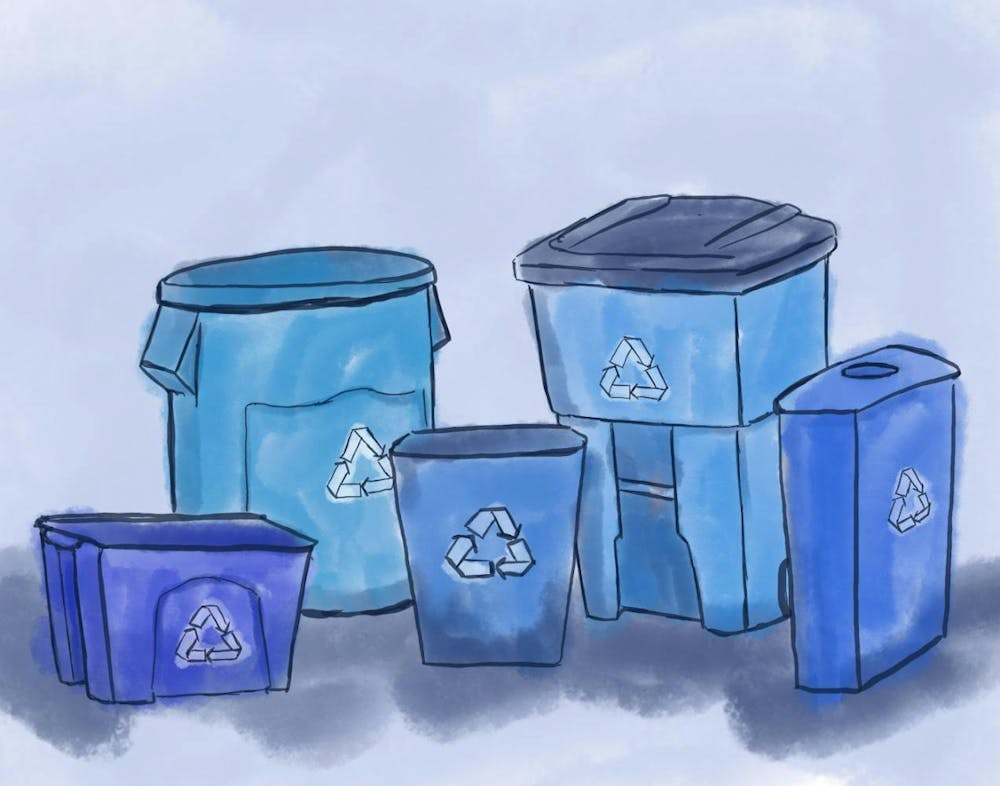Providence officials unveiled a new plan to reduce waste. Funded by $255,850 worth of U.S. Department of Agriculture grants, the City will support initiatives and local organizations implementing composting bins, encouraging landfill diversions and developing school curriculum.
In late September, the City announced a comprehensive plan to redirect waste, reduce food waste, expand access to composting and “ensure that our neighbors, local businesses and schools are engaged in the fight against climate change,” said Mayor Brett Smiley in a press release.
Providence has previously struggled with waste management. The Rhode Island Resource Recovery Corporation reported that the city’s waste diversion rate — the amount of waste diverted from landfills — was only 8.3% in 2023. This figure was the lowest in the state and far below the 2023 state average of 29.3%.
Groundworks Rhode Island received $27,715 to improve Providence’s food waste drop-off network and divert compostable waste away from landfills. Since receiving this grant in September, the nonprofit organization has installed four of the five planned compost drop-off sites, said Ella Kilpatrick Kotner ’19, a harvest cycle manager at GWRI.
For Kotner, the City’s efforts to fund smaller community-based organizations like GWRI is a step in the right direction. “So far, this grant has seemed to be very successful,” she said.
Kotner also noted the importance of GWRI’s partnership with local sustainability organization Zero Waste Providence in increasing composting efforts. Zero Waste Providence also received $84,540 for composting education efforts.
“We’re collaborating to do more of this amazing process where we're recycling organic material into this valuable resource,” Kotner said. “We all have the same goal.”
More than $70,000 went to the Rhode Island School Recycling Project, which works to reduce school food waste by providing waste management equipment and organizing educational curricula for students and teachers. Funding has helped the project establish educational programs on food waste diversion and reduction in three local public schools, according to RISRP Co-Director Jim Corwin.
According to Providence Deputy Director of Sustainability Kevin Proft, one major issue with recycling disposal arises from the size of trash and recycling carts. He said that residential 65-gallon trash carts are currently too small to support most Providence households, leading many residents to dispose of non-recyclable waste in their recycling carts.
The City hopes to implement larger, 95-gallon trash carts to prevent the issue, Proft added.
Beyond funding opportunities, Kotner also called for new policies and community-based leadership to support “large-scale change.”
“It’s a lot of work, and it often is expensive, but it’s how … things actually change,” she added.





